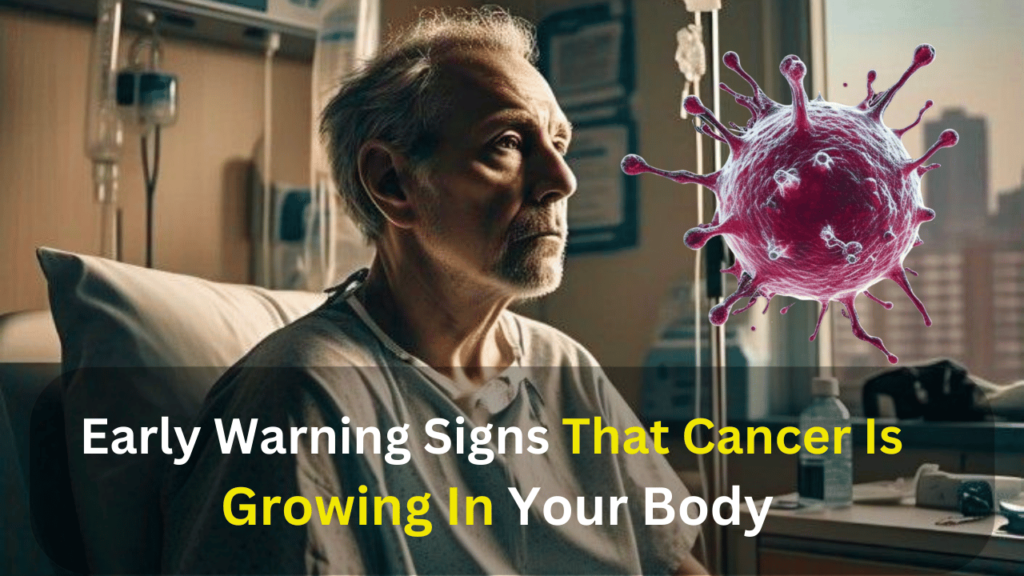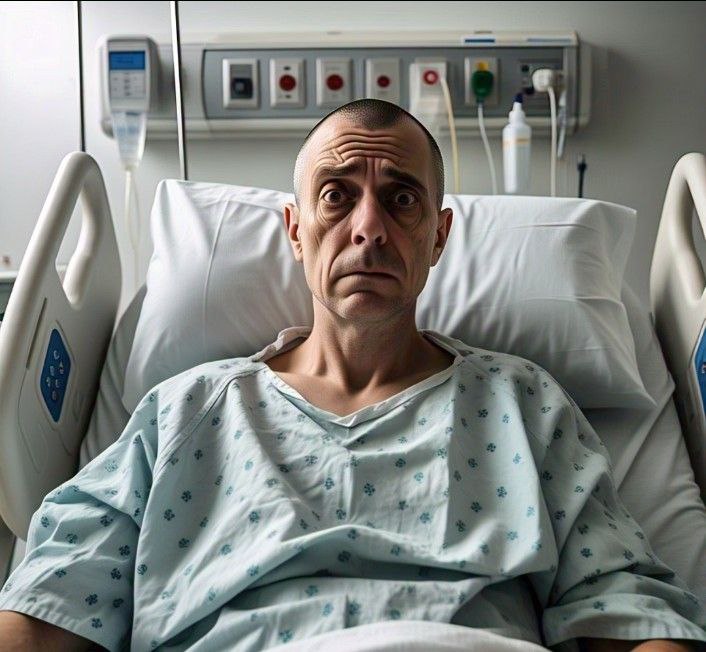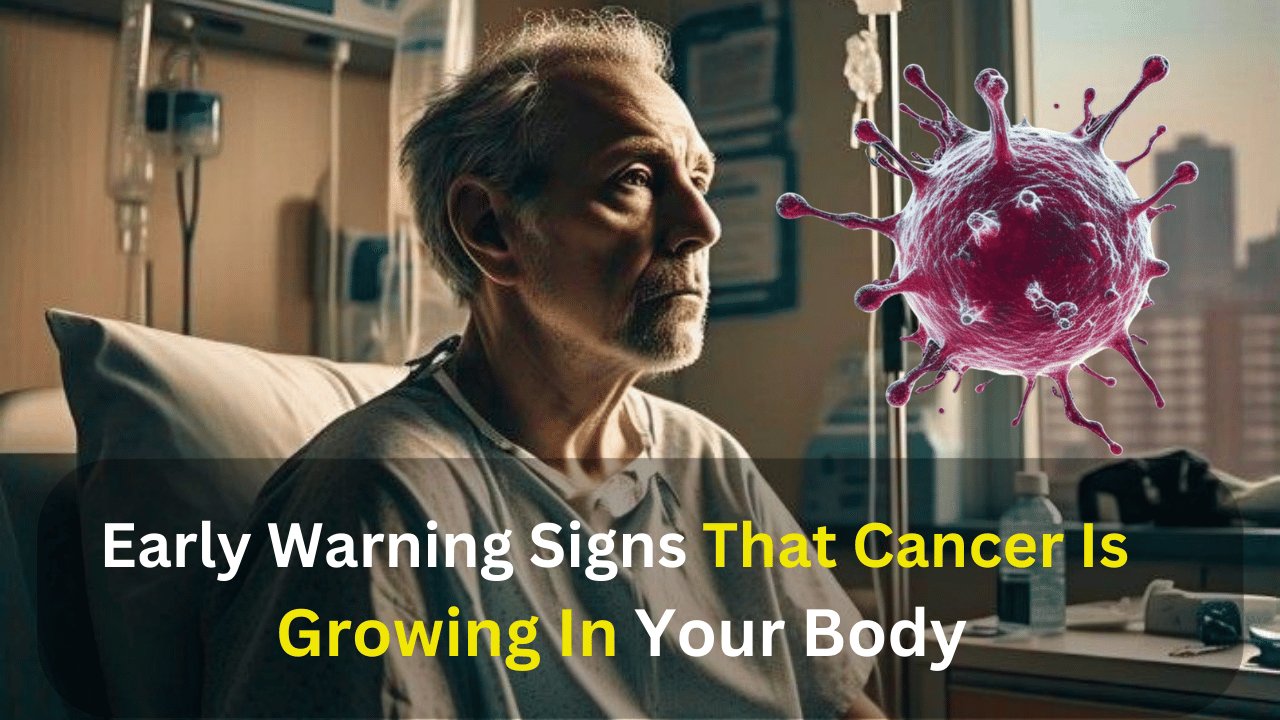
Cancer is one of the most dangerous diseases worldwide, but early detection can greatly improve survival chances. However, many people ignore early cancer symptoms, often thinking they are nothing to worry about. This leads to a delayed diagnosis, making cancer harder to treat and reducing the chances of recovery. Early signs of cancer can be subtle, and because they often look like symptoms of common illnesses, they are easily overlooked.
It’s important to recognize the early warning signs of cancer to catch it in its early stages. Symptoms like unexplained weight loss, constant tiredness, and persistent pain may point to cancer, but they are often ignored or mistaken for minor health issues. Ignoring these signs can be harmful, as some cancers grow quickly and spread to other parts of the body.
In this article, we will discuss 8 cancer signs people ignore until it’s too late. Understanding these early cancer symptoms and knowing when to see a doctor can make a big difference. From skin changes to a persistent cough, these often overlooked symptoms could help detect cancer early, giving you a better chance of successful treatment.
By staying aware of your body’s signals, you can take steps to protect your health. This article will guide you through the warning signs of cancer and encourage you to get medical help if needed. Don’t wait until it’s too late-early cancer detection is key to better health outcomes. Stay informed, stay vigilant, and listen to your body to ensure you don’t miss any important health warning signs.
Here are the 8 early sign of Cancer that you should never ignore
1) Frequent Fever or Night Sweats

Frequent fever or night sweats can be early signs of cancer, especially in types like lymphoma or leukemia. When the body fights abnormal cells, it may cause a fever. Night sweats, which cause excessive sweating at night, are often linked to cancers like lymphoma. These symptoms can appear early, sometimes before a cancer diagnosis is made. While fever and night sweats can be caused by other conditions like infections or stress, it’s important not to ignore them if they happen often or for no clear reason. If you experience unexplained fever or night sweats, it’s a good idea to see a doctor for further testing. Early Cancer detection is crucial, and recognizing symptoms like these can help catch cancer in its early stages. Don’t wait too longpay attention to any signs your body may be giving you, and get the proper medical advice.
2) Shortness of Breath

Shortness of breath can be an early sign of cancer, especially in cases where the cancer affects the lungs, chest, or abdomen. When cancer spreads to the lungs or blocks the airways, it can make breathing difficult. For example, lung cancer may cause shortness of breath if a tumor blocks airflow or leads to fluid buildup in the lungs. Cancers in the chest or abdomen can also affect the diaphragm or cause fluid to collect around the lungs, making it harder to breathe.
While shortness of breath can be caused by less serious conditions like asthma or anxiety, it’s important not to ignore breathlessness that doesn’t improve or comes on suddenly. If you feel winded easily or find it hard to catch your breath during normal activities, it’s crucial to see a doctor. Early cancer detection can lead to more effective treatments, and persistent shortness of breath could be a warning sign of something more serious.
If you experience shortness of breath that’s new, ongoing, or getting worse, it’s important to consult a healthcare provider. This could be an early symptom of lung cancer or another serious condition, so getting checked out is key to ensuring better health and early diagnosis.
3)Unexplain Weight loss

Unexplained weight loss can be an early sign of cancer, especially if you’re losing weight without trying or making any changes to your diet or exercise routine. When cancer cells grow and spread, they can affect your body’s ability to process food, leading to weight loss. This is common in cancers like pancreatic cancer, stomach cancer, lung cancer, and esophageal cancer. These types of cancer can change your appetite, digestion, and metabolism, which can result in losing weight without effort.
Weight loss can also happen when cancer spreads to other parts of the body, using more energy or making it hard for the body to absorb nutrients. In some cases, the body burns more energy trying to fight the disease, which leads to weight loss.
If you notice you’ve lost a significant amount of weight—more than 5% of your body weight in a short time—it’s important to see a doctor. While weight loss can happen for other reasons, like thyroid problems or infections, it should never be ignored, especially if there are other symptoms like tiredness or changes in your appetite. Early cancer detection is crucial, and noticing unexplained weight loss can help catch cancer early.
4) Blood Urine or Stool

Blood in your urine or stool can be an early sign of cancer, and it’s important not to ignore it. Bladder cancer, kidney cancer, or prostate cancer can cause blood to appear in your urine, sometimes without any pain. This could mean there’s a problem in your urinary system. If you notice blood in your stool, it could be a sign of colon cancer or rectal cancer, as these cancers can cause bleeding in the digestive tract, which may sometimes be mistaken for hemorrhoids.
Even small amounts of blood that you can’t see with your eyes can be found in your urine or stool with lab tests. That’s why it’s important to see a doctor if you notice any unusual changes, such as blood in your urine or stool, or if your stool looks darker than normal. While blood can also be caused by conditions like infections or hemorrhoids, it’s important to have it checked out as it could also be a sign of cancer.
If you notice blood in your urine or stool, it’s essential to see a doctor. Early cancer detection leads to better treatment and outcomes, so don’t wait—seek medical help if you experience this symptom.
5) Difficulty Swallowing

Difficulty swallowing, also called dysphagia, can be an early sign of cancer, especially in cancers that affect the throat, esophagus, or stomach. When a tumor grows in or around the esophagus or throat, it can block or narrow the passage, making it hard to swallow food or liquids. This may feel like food is stuck in your throat or chest. Esophageal cancer, throat cancer, and stomach cancer are a few types of cancer that can cause this problem in the early stages.
If you have trouble swallowing regularly, it’s important not to ignore it, especially if it gets worse over time or is linked with other symptoms like weight loss or pain while swallowing. While difficulty swallowing can also be caused by conditions like acid reflux or a sore throat, if the problem continues or gets worse, it’s important to see a doctor.
Early cancer detection is key to better treatment outcomes. If difficulty swallowing is due to cancer, early diagnosis can make a big difference in how well treatment works. If you’re having trouble swallowing or notice any other related symptoms, make sure to consult a doctor for a proper diagnosis and treatment plan.
6) Vision Changes

Difficulty swallowing, also known as dysphagia, can be an early sign of cancer, especially in cancers that affect the throat, esophagus, or stomach. When a tumor grows in or around the esophagus or throat, it can block or narrow the passage, making it hard to swallow food or liquids. This can feel like food is getting stuck in your throat or chest, or it may be painful to swallow. Cancers such as esophageal cancer, throat cancer, and stomach cancer can cause these problems in the early stages.
Although difficulty swallowing can also be caused by less serious issues like acid reflux or a sore throat, it’s important not to ignore it, especially if the problem lasts for a long time or gets worse. If you notice other symptoms, like unexplained weight loss, pain while swallowing, or changes in your voice, these could be warning signs of a more serious health issue.
Early cancer detection is very important for successful treatment. If you’re having trouble swallowing, make sure to see a doctor. They can help find the cause and rule out or confirm cancer, leading to quicker diagnosis and more effective treatment.
7)Unexplained Vomiting or Nausea

Unexplained vomiting or nausea can be an early sign of cancer, especially in cancers that affect the digestive system, such as stomach cancer, pancreatic cancer, or even brain cancer. When a tumor forms in the stomach or pancreas, it can block the digestive system or release toxins that cause nausea and vomiting. Sometimes, if cancer affects the brain, it can press on areas that control nausea, leading to constant vomiting or a feeling of sickness.
If you have unexplained nausea or vomiting that lasts for more than a few days or doesn’t seem to be caused by something like a virus or food poisoning, it could be a warning sign of a more serious issue. If this nausea comes with other symptoms like weight loss, stomach pain, or loss of appetite, it’s important to see a doctor. These could be signs of cancer or another serious health problem.
Early cancer detection is key to better treatment and recovery. If you’re experiencing long-term or unexplained vomiting or nausea, don’t ignore it. Consult a doctor who can help figure out the cause and guide you toward the right treatment, giving you a better chance for early diagnosis and successful treatment.
8) Persistent Headaches

Persistent headaches can be an early sign of cancer, especially if they are different from your usual headaches or last for a long time. Headaches caused by cancer are often linked to brain tumors or cancers that have spread to the brain. When a tumor grows in the brain, it can press on nearby tissues, causing constant headaches. These headaches may be worse in the morning or get worse with certain movements, like coughing or bending down.
Other symptoms that can come with persistent headaches include vision problems, nausea, or changes in your behavior or coordination. If your headaches are very painful, don’t go away with normal pain relief, or happen with other unusual symptoms, you should see a doctor. While headaches are often caused by things like stress or migraines, it’s important to check for more serious conditions like brain cancer or other tumors.
Early cancer detection is important for better treatment and recovery. If you have ongoing headaches and other concerning symptoms, seeing a healthcare provider can help find out the cause. Getting an early diagnosis can improve treatment success and increase your chances of recovery.
FAQ: 8 Cancer Signs People Ignore Until It’s Too Late
1)What are the early signs of cancer people often ignore?
Early signs of cancer include unexplained weight loss, persistent fatigue, changes in the skin, unexplained vomiting, nausea, shortness of breath, and blood in urine or stool. Recognizing these symptoms and seeking medical help early is key to cancer detection.
2)Can unexplained weight loss be a sign of cancer?
Yes, unexplained weight loss is one of the early signs of cancer. Cancers like stomach cancer, pancreatic cancer, and lung cancer can cause unexplained weight loss due to changes in metabolism or difficulty absorbing nutrients. If you experience significant weight loss without trying, it’s important to see a doctor.
3)Is persistent nausea or vomiting a sign of cancer?
Persistent nausea or vomiting can be an early warning sign of cancers like stomach cancer, pancreatic cancer, or even brain cancer. If nausea or vomiting lasts for a long time or occurs with other symptoms like weight loss, it’s important to consult a healthcare provider.


1 thought on “Top 8 Cancer Signs People Ignore Until It’s Too Late”